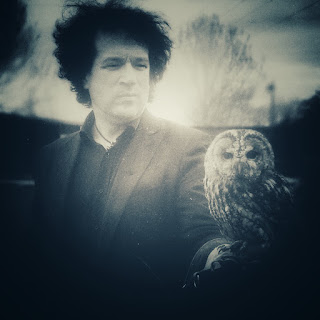Luma Grothe: the lovely face of fashion
and Irma Grese: the ugly face of fascism
Nazis are obsessed with blood: both spilling the blood of others deemed racial inferiors and preserving the purity of their own blood, which is thought to possess superior qualities and derive from a divine origin. For the Nazis, therefore, the most dreadful thing in the world is the prospect of interracial sexual relations between people of Nordic stock and those who are of non-Aryan descent. They described this as a form of Rassenschande - an infringement upon the laws of Nature which Nazi policies of racial hygiene were designed to vigorously uphold and enforce.
German girls were warned that should they commit blood treason and choose to fuck with racial inferiors, not only would they be forever lost to their own people, but any unfortunate child that resulted from the illicit union would be a lamentable creature, fit only for extermination. Such irresponsible actions also had a far wider consequence: Hitler identified miscegenation as the sole cause of cultural destruction; "for men do not perish as a result of lost wars, but by the loss of that force of resistance which is contained only in pure blood."
Despite the pseudo-biology used to provide a scientific basis for these beliefs, they are, of course, little more than pernicious fantasies. The fact is many mixed race individuals exhibit not only extraordinary beauty - as in the case of Luma Grothe, pictured above - but what is known as hybrid vigour. In other words, certain traits are enhanced as a result of the dissimilarity in the gametes by whose union the organism was formed.
Now, this is not to say that all such unions produce supermodels. But, by and large, it’s inbreeding that’s genetically problematic rather than outcrossing. For it’s the latter practice that increases diversity and promises heterotic wonders, such as Miss Grothe, born under sunny South American skies to a German mother and a father of Japanese and African descent.
Ultimately, if given the choice between the above and Irma Grese - the blonde, blue-eyed Beast of Belsen - I know whom I’d choose to share a world with ...
Note: The line quoted from Hitler can be found in Vol. 1, Chapter 11, of Mein Kampf, trans. Ralph Manheim, (Hutchinson, 1969), p. 269.
























